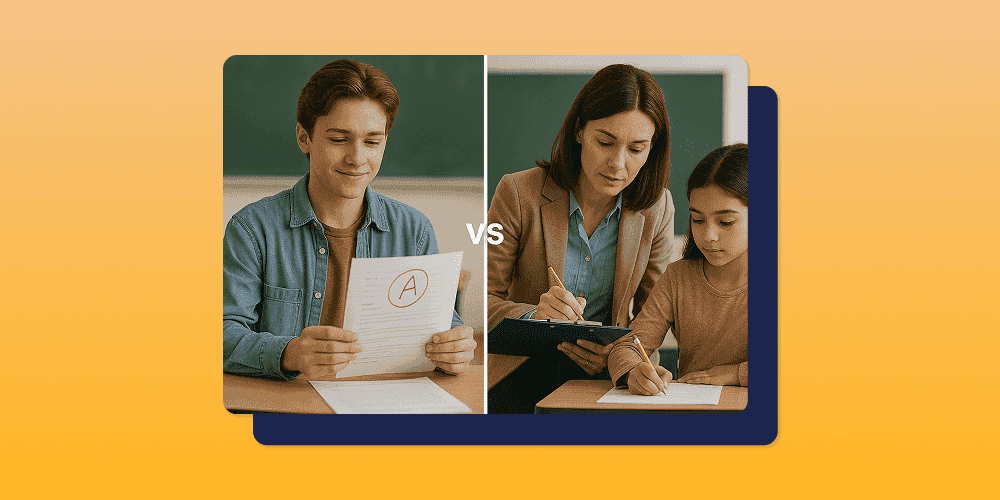
American summer tour! Wooclap will be at InstructureCon 2025
Come say hi at booth 41 from July 22nd to July 24th in Spokane, Washington
Serious games: learning by playing
04.11.2019 • 3 minutes
.png)
Who said games and learning can’t go together? Teachers certainly didn’t! Many of them have been using games for years to increase student interest and participation, mostly in small classes.
However, though this practice has been widely accepted in primary and secondary education, it has long been ignored in higher education.
We learn best when we play
You can call it "simulation" if the word "game" is scary. Marie-Jo Leroux (Source: NEUROSCIENCES ET FORMATION PROFESSIONNELLE, Vers le neurolearning), the director of 42Comets, details the elements that make it so effective:
- Emotion: the game engages the learner's emotion by immersing them in engaging situations, and stimulating their desire to find solutions to succeed.
- Interaction: Game mechanics encourage teamwork and competition, naturally encouraging learners to interact with each other, which reinforces learning.
- Active cognition: In a playful environment, well-designed puzzles and challenges engage multiple cognitive faculties in the learner, promoting information retention.
- Practice setting: This recreational environment provides a setting in which the learner can explore, discover, practice, fail and succeed at will. By completing activities at their own pace in this safe environment, they increase their mastery.
In this context, the idea that so-called «serious» games can be beneficial to students - and even adults in professional training - is steadily gaining ground. Multiple factors explain this evolution, starting with video games, whose development and popularity have been accelerating since the 1970s.
In addition, active teaching methods, which are more and more present in universities and colleges, are always looking for ways to involve students in the learning process.
In this regard, serious games could potentially offer a solution: digital games.
Mechanical engineering, fake news, and medicine
As a specialist on the subject, the University of Toulouse has hosted a dedicated research lab over the past decade: the Serious game research lab.
That is how Mécagenius, a game through which mechanical engineering students can discover a manufacturing workshop, learn to use machine-tools to design pieces, and follow the production process from A to Z, got its start in 2009.
Since then, different games have appeared which introduce people to computer programming, help them learn a foreign language, or keep track of «fake news», as can be done with the UPMC’s Hellink.
In medicine, the university of Franche-Comté and Besançon’s CHU have developed a serious game to help second- and third-year students grasp pathological anatomy.
«Discovering Pathology» was launched at the start of the school year in 2019, has received European funds, and has been translated into English. Its creators hope to offer it to various universities in Europe.
Even though new technologies have placed video games in the spotlight, games needn’t be digital to be used in the classroom.
Nanorider, for example, is a board game which was developed by Grenoble Ecole and the CEA (French Alternative Energies and Atomic Energy Commission) and in which students play different characters (marketing executive, researcher, etc.) who must collaborate to develop nanotechnological innovations.
Pedagogical value
In general, serious games immerse students in a practical situation.
In addition, though they try to avoid them, students can make mistakes without suffering the consequences. Even better: players can analyse, understand, and correct errors during post-game discussions.
Through such games, students can acquire academic knowledge, but they can also develop soft skills.
A game called Clone, developed by researchers at the university of Albi, helps nursing students get acquainted with their future job: it emphasises the importance of being organised, planning, and making decisions.
More than academic knowledge, it aims to impart professional soft skills. Of course, one must also think about how to use these games for learning purposes.
In the end, whether digital or otherwise, games alone aren’t enough. In fact, that is the very subject of a MOOC (Massive online open course) titled «Serious gaming», created by Rotterdam’s Erasmus University.
Writer

The Wooclap team
Make learning awesome & effective
A monthly summary of our product updates and our latest published content, directly in your inbox.



